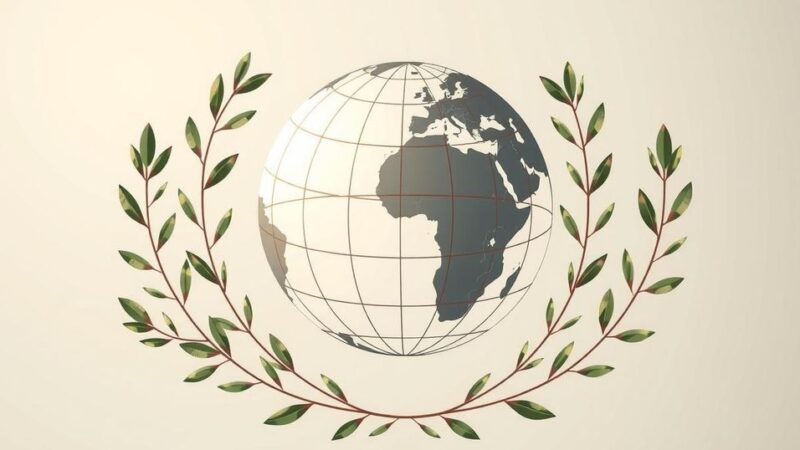Ecuador’s election results suggest potential challenges for U.S. interests as Correa’s leftist party gains traction. Daniel Noboa narrowly leads against Correa-backed Luisa Gonzalez, while Pachakutik’s support could sway the runoff outcome. Concerns rise regarding the influence of Correa’s administration and its hostile relations with the U.S., complicating the political landscape as Noboa navigates significant issues like violence and energy crises.
Ecuador’s recent election results pose significant challenges for the United States and democracy in Latin America. The leftist populist party associated with former president Rafael Correa has gained unexpected momentum, putting them in a strong position for the upcoming runoff on April 13. Polls initially suggested a comfortable victory for the center-right candidate Daniel Noboa, but he secured only 44.2% of the vote, closely trailing Correa-backed candidate Luisa Gonzalez, who received 43.9%.
In third place was Leonidas Iza of the leftist Pachakutik party, with 5.3% of the vote. The Pachakutik party’s support will be crucial in determining the outcome of the runoff election, as Noboa and Gonzalez, combined, garnered nearly 90% of the votes in the first round. A significant share of Pachakutik supporters is expected to back Gonzalez, given her connection to Correa’s party and ideals.
Concerns are raised among U.S. officials, as Gonzalez, a dedicated follower of Correa, aligns with leftist movements in Latin America that are often hostile to U.S. interests. Former Ecuadoran president Jamil Mahuad noted that Gonzalez would likely support alliances among countries like Venezuela and Cuba. Correa, who served as president from 2007 to 2017 before facing corruption charges, has a long-standing adversarial relationship with the United States.
Political scientists suggest Gonzalez has the upper hand in the runoff, given the potential for gaining votes from Pachakutik supporters, traditionally opposing Correa. Jaime Durán Barba, a political consultant close to Noboa, expressed surprise at the initial results and believes that the diverse views of Pachakutik’s base may play a crucial role in the election’s final outcome.
Noboa’s administration faces significant tasks ahead, particularly addressing drug-related violence and an energy crisis, which have become paramount issues for the electorate. To regain public confidence, Noboa will need to appeal to indigenous voters and implement effective measures to combat violence while seeking diplomatic support from the U.S. and Latin American allies.
In summary, the outcome of Ecuador’s presidential runoff carries substantial implications for U.S. foreign policy and the political landscape in Latin America. The rise of Correa’s candidate signals a potential shift toward leftist governance, which could adversely affect U.S. interests. With pressing challenges such as drug violence and energy shortages, President Noboa must take decisive actions to secure reelection and stabilize the nation.
Original Source: buenosairesherald.com






